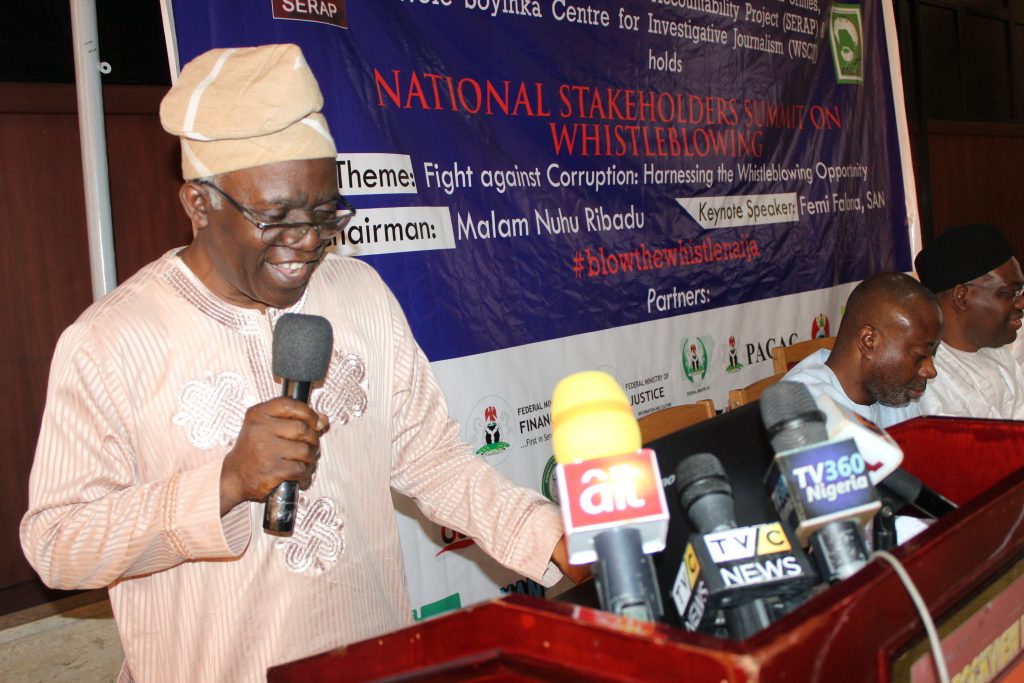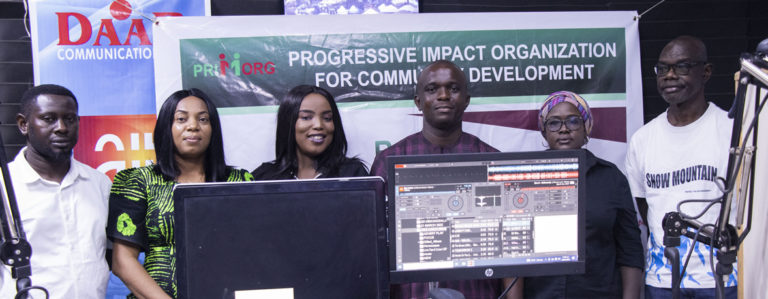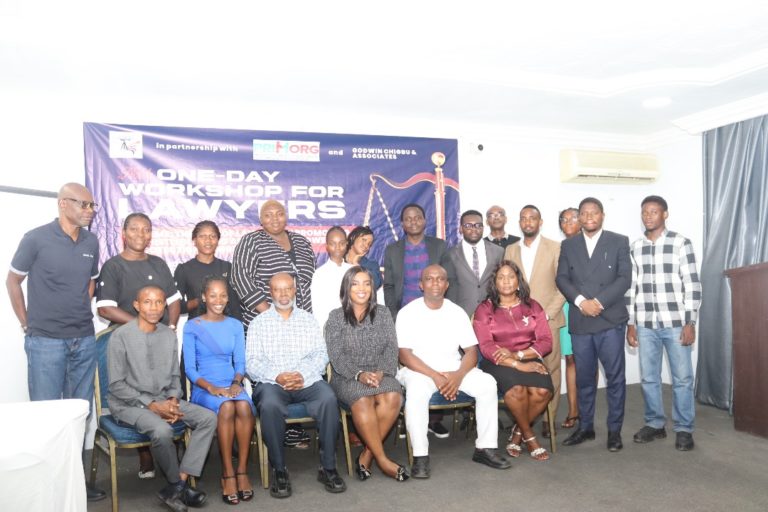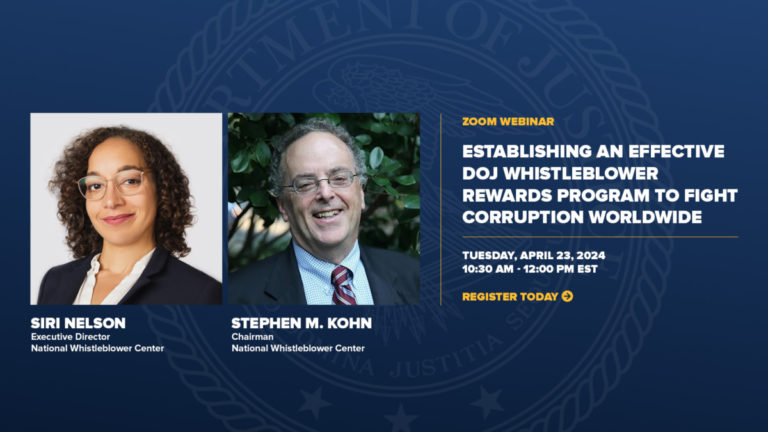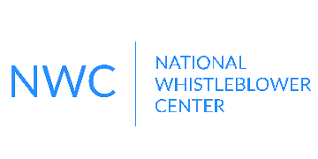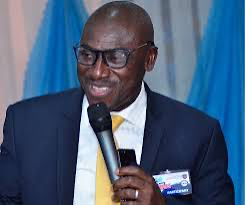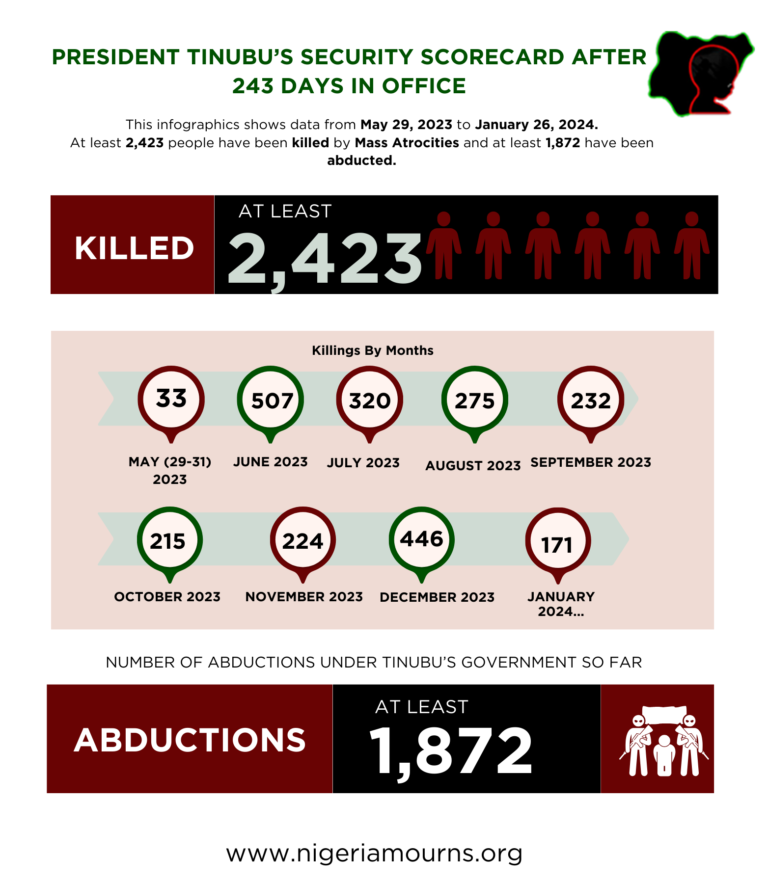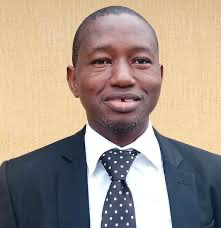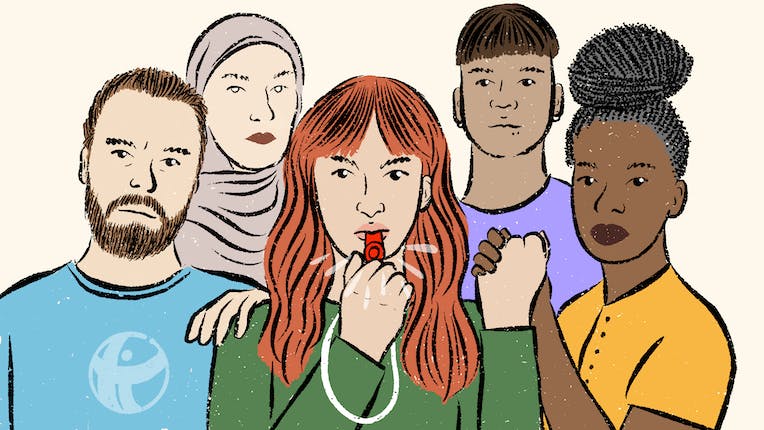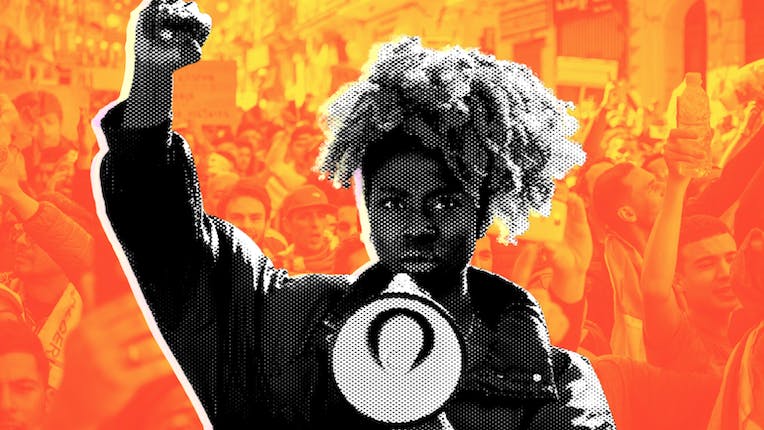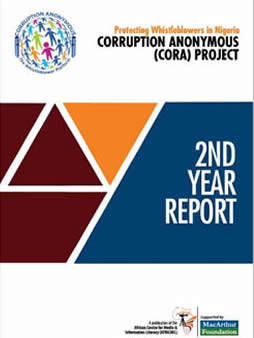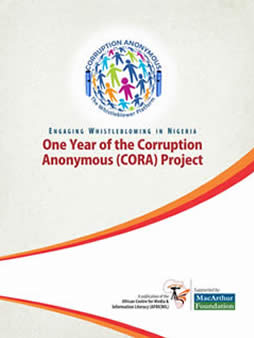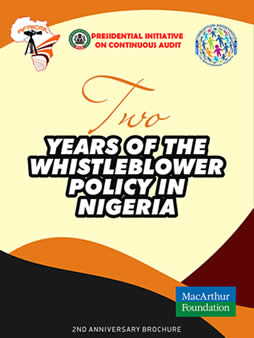By Femi Falana
Introduction
The practice of blowing the whistle by citizens is not new in Nigeria. In pre-colonial African societies traditional law enforcement institutions relied on information provided by whistle blowers in maintaining law and order. For instance, the Yoruba people believed that an Oba could obtain information from whistle-blowers to get to the root of any criminal behavior or misconduct in his domain. The belief is captured in the proverb which says “Eti Oba nile eti Oba loko, eniyan lo n jebe”. (The Oba has his ear to the ground). Whistle-blowers were protected by the Oba as his sources of information could not be questioned by any authority or person.
The practice was however discouraged when the colonial regime took over the maintenance of law and order. As the police force set up by the alien regime became an instrument of intimidation and oppression of the natives, whistleblowers refused to provide information that could lead to the arrest of criminal suspects. With the attainment of political independence, the situation did not change as the Nigeria Police Force continued to unleash violence on the people. Owing to lack of cooperation on the part of members of the public the police had to pay for information that could lead to the arrest and prosecution of perpetrators of murder and other violent crimes. Even then, many whistleblowers refused to claim such reward on the ground that it was “blood money”.
Harassment of whistle blowers in Nigeria
In justifying the violent removal of the Tafawa Balewa administration on January 15, 1966 the coup plotters accused the civilian regime of engaging in corruption by collecting 10% of contact value from contractors. But successive military regimes graduated from 10% to 100% as there were instances where the entire contact sums were shared by public officers and contractors. Out of frustration a few concerned citizens were aided by the media to expose official corruption by blowing the whistle. As the Yakubu Gowon military regime tried desperately to cover up corrupt officials some anti-corruption crusaders resorted to the filing of affidavits in the court and publication of the information of corruption contained therein.
Mr. Godwin Daboh who exposed the corrupt practices of Mr. J. S. Tarka, a powerful minister was harassed by the military government. When he stood his ground, the minister resigned from the government and sued for libel in the Lagos High Court. In dismissing the case Candide-Johnson J. (as he then was) commended the courage of the Sketch newspaper which had published the story. The regime pursued Mr. Daboh and eventually charged him with stealing and convicted him. Another whistle blower, Mr. Aper Aku who swore to an affidavit to expose corruption by the military governor od Benue/Plateau state, Mr Gomwalk was clamped into detention under a preventive detention decree.
A journalist was beaten to stupor for taking the photograph of a military governor who was dancing at an ‘owambe’ party. Although the State provided medical attention for the man he eventually died. In his detention diary titled “The Man Died”, Professor Wole Soyinka was referring to the brutal treatment meted out to the photographer.
The intimidation and harassment of whistle blowers continued under the Ibrahim Babangida junta. The most notorious case was that of a prominent Nigerian journalist, Mr. Dele Giwa. In a bid to prevent him from publishing a story the security and military intelligence agencies accused him of plotting of working with certain disgruntled elements to cause a socialist revolution in the country. Mr. Giwa dismissed the baseless allegations and stood his ground. A few days later he was killed by a parcel bomb in gruesome circumstances. In reacting to the terrorist attack the Ibrahim Babangida junta urged members of the public to provide useful information that could lead to the arrest of the criminals who had perpetrated the crime.
Mr. Giwa’s lawyer, the late Chief Gani Fawehinmi SAN decided to assist the Police by providing vital information that could to the arrest of people suspected to have carried out the dastardly act. At the instance of the military junta the police dismissed the information supplied by the lawyer. In a desperate move to scare him from pursuing the case his law office was attacked by a gang of armed soldiers.
Although the lawyer was not around during the attack the man in charge of the security of the office was shot and his right hand had to bed amputated. As it became clear that the authorities were determined to cover up the dangerous crime the lawyer applied for the fiat of the Attorney-General to prosecute the public officers suspected by him to have masterminded the crime.
Not only was the application rejected, the State mounted a vehement opposition to his efforts to embark on the private prosecution of the murder suspects. In particular, his locus standi of the lawyer to initiate criminal proceedings in the matter was questioned in the celebrated case of Fawehinmi v Akilu (1987) 2 NWLR (PAT 122) 102. In upholding the right of the locus standi of the lawyer the Supreme Court held that we are all our brothers’ keepers and that it is the duty of every citizen to be involved in eliminating crimes in the society. However, in Akilu v Fawehinmi the same court held that the military regime had limited the right of private prosecution in Lagos State to perjury. Thus, the concerned lawyer was disallowed by the State from prosecuting the suspects.
The retention of the Official Secrets Act and the penal codes which prohibited the publication of seditious statements by the government discouraged citizens from blowing the whistle to expose official corruption. In Arthur Nwankwo v The State (1985) 5 NCLR 228 the appellant had been jailed for 12 months for publishing a pamphlet which contained information on the alleged looting of the treasury of Anambra state by former Governor Jim Nwobodo. Although section 51 of the Criminal Code which provided for sedition was declared illegal and unconstitutional the federal and state governments have not ceased to drag citizens to court for the publication of seditions materials.
In 2005, three journalists were charged with sedition by the Attorney-General of the Federation for reporting that President Obasanjo had bought a second-hand jet. As defence counsel in the case I filed a preliminary objection which challenged the competence of the charge. Even though the charge was withdrawn and struck out two other journalists were charged with forgery by the federal government for publishing a confidential directive allegedly authorising the harassment of political opponents by President Jonathan. The case was also withdrawn as the prosecution’s star witness ran into serious contradictions when I cross examined him.
A few years ago, a governor in one of the states in the south west region set up a squad to silence all his political opponents. In carrying out the criminal assignment the squad killed three some unarmed citizens including students. I probed the killings and alerted the authorities of my findings. Without challenging my allegations, the police threatened to arrest me if I continued to expose the murderous activities of the governor. I ignored the threat and petitioned the State Security Service which decided to conduct a discreet inquiry into my allegations. The SSS confirmed the allegations and found more evidence of killings. Even though the chief murderer and his cohorts were eventually charged with conspiracy and murder the State refused to pursue the cases until they were struck out for want of diligent prosecution.
In spite of the promise of the Obasanjo administration to fish out the killers of some prominent citizens the Police hurriedly terminated the investigations. With respect to the cold murder of a former Attorney-general and Minister of Justice, Chief Bola Ige SAN in December 2001 the man who attempted to expose the alleged murderers was arrested and detained by the police until he recanted. As if that was not enough, his lawyer, Festus Keyamo SAN was arrested, detained and charged to court for instigating the whistleblower to implicate and embarrass a prominent politician.
Upon the conclusion of the 2003 general elections, a security official gave me a report on the criminal manipulation of the governorship election in my home state. I passed the report to a friend who had decided to challenge the results of the questionable election. Since the report corroborated the allegations of electoral malfeasance set out in his petition he pleaded and frontloaded it. Not unexpectedly, the petitioner was arrested by the SSS and was only released when he informed his interrogators that he had collected the report from me. Of course, I was arrested too. In my brief chat with a team of SSS interrogators I admitted that i gave the report to the petitioner. At that juncture, I was charged with being in possession of a secret document in contravention of the Official Secret Act. I was released when I pointed out that I have freedom to receive information and share it with the petitioner and that the document in question was not marked “secret”!
The late Chief Fawehinmi SAN, Festus Keyamo SAN and I were lucky that we were not killed for providing information to the State in respect of serious cases of murder and other acts of impunity by well-known criminal elements. Many other citizens have lost their lives for blowing the whistle in cases of official murders. On account of corruption the police force has exposed many whistleblowers to danger by revealing their identities to armed robbers and other dangerous criminals. Hence, members of the public have stopped collaborating with the police by providing information that could lead to the arrest of criminal suspects. It was the development that led to the policy of recruiting informants and paying citizens who provide vital information to the State.
The whistle blowing policy of the Buhari administration
The Whistle Blower Protection Bill and other anti-corruption bills submitted to the national assembly by President Buhari have not been attended to for the fear that the legislators might be exposing themselves to prosecution for corrupt practices. However, both the judicial and executive arms of the federal government have, out of ingenuity, fashioned out policies designed to promote the anti-corruption crusade. Following the refusal of the national assembly to pass the Whistleblowing Protection Bill the Federal Ministry of Finance has adopted a comprehensive whistle blower policy to encourage the Nigerian people to provide information that could lead to the recovery of looted wealth or stolen assets.
According to the Federal Ministry of Finance (FMF) the whistle blowing programme of the federal government is principally designed to increase exposure of financial or financial related crimes; Support the fight against financial crimes and corruption; Improved level of public confidence in public entities; Enhance transparency and accountability in the management of public funds; Improve Nigeria’s Open Government Ranking and Ease of Doing Business Indicators; and Recovery of public funds that can be deployed to finance Nigeria’s infrastructure deficit.
Under the policy, whistleblowers are required to provide information in respect of mismanagement or misappropriation of public funds and assets (e.g. properties and vehicles); Financial malpractice or fraud; Collecting/soliciting bribes; Corruption; Diversion of revenues; Fraudulent and unapproved payments; Splitting of contracts; Procurement fraud (kickbacks and over-invoicing etc.). See http://whistle.finance.gov.ng, Accordingly, individuals with “authentic information about violation, misconduct, or improper activity which can impact negatively on the Nigerian people and Government” can report it through any of the following channels – FMF-Whistle secure website (http://whistle.finance.gov.ng), email ([email protected]) or by Phone (+2349098067946). For phone calls: Monday – Friday 10.00am to 3.00pm except on public holidays).
A whistleblower is entitled to a reward of about 2.5% – 5% of the amount recovered if he provided the Government with information that directly led to the voluntary return of stolen or concealed public funds or assets; provided the information is one that the Government does not already have and which it could not have obtained from any other publicly available source. The whistleblower would only get rewarded if the money is recovered on account of the information supplied by him. To ensure the security of whistle blowers information could be submitted anonymously. Public officers or private individuals who have cause to blow the whistle are entitled to protection from victimization.
The federal government believes that its whistle blowing policy is working. Apart from the hundreds of millions of dollars and billions of Naira recovered so far, the FMF received a total of 2,251 complaints in first three months (December 22, 2016 to April 2017). The security agencies have adopted the policy. The Inspector General of Police, Mr. Ibrahim Idris has asked whistleblowers to report the misconduct of policemen to the Police Complaint Rapid Response Unit (PCRRU), through any of these – phone lines, SMS, WhatsApp, Blackberry Messenger (BBM), Emails, Facebook, Twitter platforms. Similarly, the National Security Adviser, NSA, Major General Babagana Monguno has said that there are plans to extend the policy to the area of security with a view to mopping up surplus illegal weapons in the country.
Legal protection for whistle blowers
According to Wikipedia, “whistleblowers have the right to file complaints that they believe are reasonable evidences of a violation of a law, rule or regulation; gross mismanagement; gross waste of funds; an abuse of authority; or a substantial and specific danger.” The United States has enacted many whistleblower protection laws which include the False Claims Act (1777), Sarbanes Act (2002), The American Recovery and Reinvestment Act (2009), The Intelligence Community Whistleblower Protection Act (1998) and Whistleblower Protection Enhancement Act (2012). Apart from reporting fraud, corrupt practices and other cases of misconduct to the government whistleblowers may decide to report impunity or abuse of power on the part of the government to the public. The most recent example is that of Edward Snowden and Julian Assange.
Taking a cue from the United States, Senator Ganiyu Olanrewaju Solomon sponsored a Whistleblower Bill in the Nigerian Senate in 2008, with a view to providing “for the manner in which individuals may in the public interest disclose information that relates to unlawful or other illegal conduct or corrupt practices of others, to provide for the protection against victimisation of persons who make these disclosures; to provide for related matters.” Even though the Bill was passed by the national assembly in 2015 President Goodluck Jonathan did not sign it into law for reasons best known to him. A similar Bill submitted to the national assembly by the Buhari administration has not been attended to by the national assembly.
Although there is no specific law for the protection of whistleblowers any report of information provided by a whistleblower is an exercise of the fundamental human right to freedom of expression guaranteed by section 39 of the Constitution and article 9 of the African Charter on Human and Peoples Rights (Ratification and Enforcement) Act. Furthermore, section 22 of the Constitution has imposed a duty on the mass media to promote accountability and transparency of the government to the people.
It is further submitted that the anti-graft laws have made provisions for the partial protection of whistleblowers. Section 64 of the Corrupt Practices & Other Related Offences Act (2000) provides that the information contained in a complaint, the identity of the complainant and circumstances of disclosure shall be kept secret and shall only be disclosed to a trial judge and defence lawyer in attendance in any civil or criminal proceedings while Section 39(1) of the Economic & Financial Crimes Commission Act 2004 (EFCC Act) only provides that officers of the Economic & Financial Crimes Commission cannot be compelled to disclose information or identity of informants except by order of court.
Whereas the Money Laundering Act has imposed on duty on financial institutions including lawyers, accountants, bankers etc., to report suspicious financial transactions which may involve their clients or customers the Nigerian Bar Association approached the Federal High Court to strike down the provisions which violated lawyer-client confidentiality. The trail court granted the reliefs sought by the lawyers. (Registered Trustees of Nigerian Bar Association v Attorney-General of the Federation & Anor (unreported Suit No. FHC/ABJ/CS/173/2013). The judgment has since been upheld by the Court of Appeal (Central Bank of Nigeria v Registered Trustees of Nigerian Bar Association & Anor (Unreported Appeal No. CA/A/202/2015). Notwithstanding the legal victory scored by the Nigerian Bar Association it is hoped that it will emulate the American Bar Association which has adopted the Model Rules of Professional Conduct (2015) which mandates lawyers to take appropriate steps to ensure that their corporate clients conform to the law, even if that means breaking attorney-client confidentiality.
It is my firm belief that in fighting corruption “the Fiscal Responsibility Act (2007) and the Freedom of Information Act (2011) have turned the Nigerian people into whistleblowers. Both laws have granted unhindered access to concerned citizens to approach the court to enforce compliance with the law.” (Femi Falana: Nigerian Law on Socioeconomic Rights, Legaltext Publishing Company Limited, 2017, Page 175.) In Dododo V Economic and Financial Crimes Commission & Ors (2013) 1 N.W.L.R (Pt 1336) 468 it was held by the Court of Appeal that by the combined effect of sections 15(50 and 24(e) of the Constitution a duty has been imposed on every citizen to report allegations of corruption to the anti-graft agencies. In Fajemirokun v Commercial Bank Nigeria Ltd & Anor. (2009) LPER-SC.336/2002 it was also held by the Supreme Court that every citizen is duty bound to report the commission of criminal offences.
It is pertinent to note that information obtained from public institutions may be of assistance in blowing the whistle. For instance, based on the information obtained from agencies of the federal government some concerned citizens have blown the whistle to expose corrupt practices involving multinational corporations and some powerful individuals. But instead of embarking on the recovery of hundreds of billions of dollars from indicted multinational companies and foreign nationals the federal government has been celebrating the little success recorded locally on the basis of information garnered from a few whistleblowers. It is high time the federal government was told to concentrate attention on the recovery of the over $300 billion listed below:
- From five cycles of independent audit reports covering 1999-2012 the National Extractive Industries Transparency Initiative revealed that the Nigerian National Petroleum Corporation, some oil companies and certain agencies of the Federal Government have withheld $20.2 billion from the Federation Account. The NEITI has carried out further audits and found that the NNPC is withholding $21.7 billion and N376 billion from the Federation Account.
- In 2006, the Central Bank of Nigeria removed $7 billion from the nation’s external reserves and placed same as deposit in 14 Nigerian banks. In 2008, the Bank also gave a bailout of N600 billion ($4 billion) to the same banks. In spite of pressure from some CSOs the Central bank has failed to recover the principal sum of $11 billion and accrued interests from the banks.
- On September 6, 2016 the Nigerian National Petroleum Corporation (NNPC) announced that arrangements had been concluded to recover the sum of $9.6 billion in over-deducted tax benefits from joint venture partners on major capital projects and oil swap contracts. We have confirmed that the NNPC has recovered the said sum of $9.6 billion but has not same remitted same into the Federation Account.
- Sometime in 2009, ExxonMobil Oil Producing Nigeria Unlimited applied to the Federal Government for the renewal of three oil blocks. Upon granting the application, the NNPC asked Mobil to pay the sum of $2.5 billion for the renewal of the licenses. Curiously, the $600 million paid by ExxonMobil was accepted by the Federal Government. The outstanding sum of $1.9 billion has not been recovered from ExxonMobil.
- From 1998-2014, the Federal Government collected over $4 billion from the estimated $5 billion stolen by a former military ruler, the late General Sani Abacha. The office of the Accountant-General has refused to account for the recovered loot.
- The Swiss Government has agreed to release the sum of $321 million from the Abacha loot. However, legal measures should be intensified to recover the remaining loot of about $300 million being frustrated by the United States government in the High Court of Jersey in the United Kingdom.
- The Pius Okigbo Panel instituted by the Federal Government in 1994 found that the sum of $12.4 billion deposited in two dedicated accounts in the Central Bank was not accounted for by the Ibrahim Babangida junta. In response to the popular demand for the recovery of the fund the Federal Government claimed that the report of the Okigbo Panel was missing. We have since found the report and are prepared to make it available to the Federal Government to facilitate the recovery of the said sum of $12.4 billion.
- The $470 million contract awarded to ZTE, (a Chinese company) in 2009 by the Federal Government for the construction of CCTV cameras in Abuja and Lagos has been abandoned. Although the contract was not executed the contract sum of $470 million has not been recovered from the company.
- In the Appropriation Act of 2011, the sum of N245 billion was earmarked for fuel subsidy. In violation of the law federal ministry of finance and the Central Bank fraudulently paid out N2.5 trillion to a cabal of fuel importers. Although the EFCC has charged some suspects to court the whole fraud ought to be revisited as the investigation into the monumental fraud was compromised by the Jonathan administration.
- The federal government has confirmed that 60.2 million barrels of crude oil stolen from Nigeria from January 2011 to December 2014 by the so-called Oil Majors were discharged at the Philadelphia port in the United States. The value of the stolen crude oil is $12.7 billion. The complaint which a CSO submitted to the EFCC on the fraud has not been investigated.
- It has been established by the office of the Attorney-General of the Federation that MTN illegally transferred the sum of $13.9 billion out of Nigeria. The Senate recently investigated and confirmed the fraud. But in a curious resolution passed a fortnight ago, the Senate blamed the Central Bank and gave MTN a clean bill of health! The huge fund should be recovered while the economic saboteurs involved in the illicit transfer should be prosecuted.
- In spite of the mutual legal assistance agreements which have been signed between Nigeria and the United Arab Emirates the federal government has not taken any concrete step towards the recovery of the nation’s stolen wealth in Dubai which is said to be worth over $200 billion.
- 12. While the United States and other foreign countries have made billions of dollars from the fines imposed on Halliburton, Siemens and other western companies for bribing Nigerian officials the federal government has neither recovered substantial fund nor prosecuted the indicted officials, companies and individuals.
Whistleblowers in the public service
It is interesting to note that some of the patriots who have blown the whistle to expose corruption in recent time are members of the ruling party, close aides and family members of President Buhari. Thus, the whistleblowers from within include:
- The President’s daughter, Zahra and her mother, the First Lady, Mrs Aisha Buhari who disclosed that the Villa Clinic lacks basic medical equipment in spite of the budget of N3 billion.
- The Senate Committee headed by Senator Shehu Sanni, an APC member, which indicted a former Secretary to the Federal Government, Mr. Babachir Lawal over the N200 million grass cutting contract. Upon the confirmation of the allegations of corruption through a 3-man committee headed by the Vice President Yemi Osinbajo, the federal government removed Mr. Lawal from office.
- The Minister of state in the Ministry of Petroleum Resources, Dr. Ibe Kachukwu blew the whistle in respect of lopsided appointments and award of $25 billion contracts by the Group Managing Director of the Nigerian National Petroleum Corporation, Dr. Maikanti Baru
- The National Extractive Industry Transparency Initiative (NEITI) an agency of the Federal Government, revealed that the Nigerian National Petroleum Corporation has refused to remit the sum of $21.7 billion and N376 billion to the Federation Account.
- The Minister of Health, Professor Isaac Folorunso Adewole announced that the Director-General of the National Health Insurance Scheme, Usman Yusuf had been suspended on account of alleged corrupt practices.
- Last month, the Head of Service, Mrs Winifred Ekanem Oyo-Ita disclosed that she drew the attention of President Buhari to the negative implications of the purported reinstatement, promotion and deployment of the dismissed fugitive from the law, Mr Abdulrasheed Maina.
- On November 5, 2017 an aggrieved soldier in the war front in the north east zone sent an anonymous petition to the President complaining of non-payment of their salaries and allowances by the military authorities. The President confirmed the allegation and ordered the immediate payment of the emoluments of the troops.
The Way Forward
President Buhari deserves commendation for encouraging members of his family and government to blow the whistle on corruption. However, the President owes himself and the nation of ensuring that the disclosures of corrupt practices by serving public officers are fully investigated with a view to removing and prosecuting the indicted criminal elements among them. At the same time, the Federal Government must institutionalize measures for the protection of whistleblowers. Accordingly, all whistleblowers who have been dismissed from the public service should be reinstated while those who are entitled to commission should be paid without any delay.
However, the whistleblower policy of the federal government cannot succeed without a holistic overhaul of the entire anti-corruption agencies. In this regard, President Buhari should, without any further delay, fill the vacancy in the Code of Conduct Tribunal by requesting the National Judicial Council to recommend the appointment of the third member of the Tribunal. Since the Senate has suspended the confirmation of any appointee of President Buhari so as to enforce the resolution on the removal of the Acting Chairman of the EFFCC, Mr. Ibrahim Magu from office, the Chairmen of the CCB and ICPC who have been appointed should be directed to discharge the functions of their offices in acting capacities pursuant to section 171 of the Constitution.
In view of the fact that some highly placed officials of the government have been indicted by whistleblower the body in charge of the whistleblower policy of the Federal Government should not be warehoused in the Federal Ministry of Finance or any other ministry. To ensure the success of the policy the whistleblower body should be manned by accredited representatives of credible Civil Society Organisations assisted by officials of the anti-graft agencies. To institutionalise the policy the national assembly should be mobilised to pass the Whistle Blower Protection Bill into law.
While all state and local governments should be tasked to adopt the whistleblower policy the funds and assets stolen and recovered by the Federal Government in the ongoing anti-corruption crusade should not be channelled toward the funding of the budget. A special body, like the former Presidential Trust Fund headed by General Buhari, should be set up to manage the funds for the revitalisation of public hospitals, fixing of roads and schools in all the states of the federation.
Although the federal ministry of Finace recently reported that not less than 20 whistleblowers have been paid N850 million the alleged harassment of the fellow who provided the information which led to the discovery of te $43 million in an apartment in Ikoyi, Lagos is totally unjustified. According to reports which have not been denied the whistleblower was detained by the State Security Service and taken to a psychiatric hospital by the EFCC. In order not to discourage Nigerians from blowing the whistle on corrupt practices the federal government should pay apologise to the whistleblower and pay him his commission without any further delay.
Conclusion
In this address I have shown that the struggle of the Nigerian people to expose corruption and other crimes through by blowing the whistle has been accorded official recognition by the federal government. No doubt, the Buhari administration deserves commendation for embracing the whistleblower policy in the war against corruption. Since not much has been done to protect whistle blowers not less than 10 public officers have been victimized for daring to expose corruption. Some of them are auditors who refused to collude with unpatriotic public officers to cover up mismanagement of public funds. While some funds have been recovered through the whistleblower policy it is sad to note that the Buhari administration has not been forthcoming in the recovery of hundreds of billions of dollars from the NNPC and a number of multinational corporations operating in the country.
Finally, since it is not certain that the national assembly will pass from the Whistleblowers Protection Bill into law the federal government should continue to review the whistleblower policy designed by the FMF. In addition, the federal government should pluck up the courage to commence investigations into the allegations of the nation’s wealth worth billions of dollars which have been stolen by certain corporate bodies and foreign governments. Furthermore, the sundry allegations of murder and other violent crimes which have been reported by whistle blowers should be investigated with a view to prosecuting any person who is indicted no matter how highly placed.
This was a keynote address delivered by Femi Falana, SAN, at a one-day National Stakeholders Summit on Whistleblowing and the Fight against Corruption in Nigeria organised by the African Centre for Media & Information Literacy and partners in Abuja on Tuesday, November 14, 2017.

